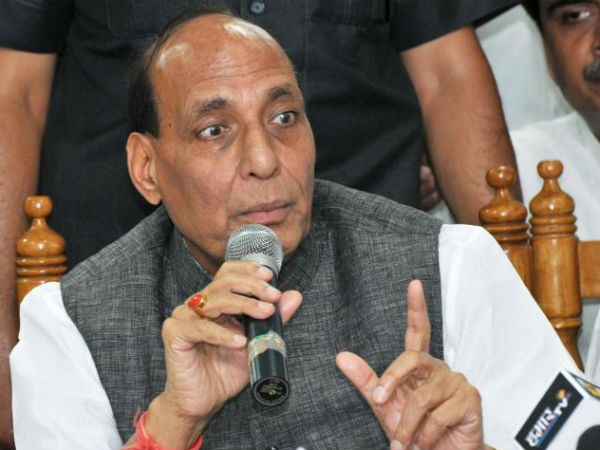NEW DELHI: The Modi government is working on strengthening the anti-terror law to provide legal protection for undercover operations, Union home minister Rajnath Singh said here on Friday.
The statement assumes significance given that some key intelligence-based counter-terror operations in the past, including neutralisation of a Lashker e Toiba module in 2004 that left Mumbra girl Ishrat Jahan dead, have seen intelligence officers face criminal investigation.
Addressing the ‘national conference on investigating agencies’ organised by the Bureau of Police Research & Development (BPR&D) here, Singh said: “Our government is committed to punish terrorists. We are working to strengthen the Unlawful Activities (Prevention) Act and the NIA Act. We are considering legal protection for undercover operation, use of intelligence collected as evidence and entire gamut of issues relevant to combating terrorism”.
Incidentally, experts feel that though legal protection for undercover operations may be a welcome respite for intelligence operatives who may not always be able to play by the rules while pursuing pro-active, counter-terror action, and would be in line with the practice in many other countries, it will run into criticism from the civil society and human rights groups who may see legal immunity as an “excuse for counter-terror forces to commit excesses”.
Singh said the government was also examining enactment of Mutual Legal Assistance in Criminal Matters Act to provide legal sanction for evidence obtained through Mutual Legal Assistance Treaties and remove doubts about admissibility of such evidence.
Referring to the widespread use of social media by terrorists, the home minister said the present capabilities of cyber-monitoring organisations like CERT-IN may need to be strengthened. He also pointed to efforts to establish the Indian Cyber Crime Coordination Centre (I4C) to deal with all types of cyber crimes in the country. “One of the priorities of 14C will be to thwart attempts by international cyber gangs to penetrate Indian networks and hack them. 14C will act a nodal point in fight against cyber crime and also as an early warning system for law enforcement agencies,” he told the conference attended by brass of the Central and state law enforcement agencies.
Singh said the central government is committed to empowerment of Dalits and had strengthened the Scheduled Caste and Scheduled Tribe (Prevention of Atrocities) Act in 2014 by adding more offences. “The implementation of this Act is the responsibility of state government and local police,” he stated.
The home minister said investigation agencies are facing many challenges and hoped that the conference would be an opportunity to discuss ways to overcome them.
The second session was held on “Digital & Technology Driven Crimes”, featuring deputy NSA Arvind Gupta and national cyber security coordinator Gulshan Rai as speakers.
The third session dealt with ‘Ideas from States’. Uttarakhand DGP M A Ganapathy spoke on “Database and Crime Investigation”.
(Sourced from agencies, Feature image courtesy:oneindia.com)



























